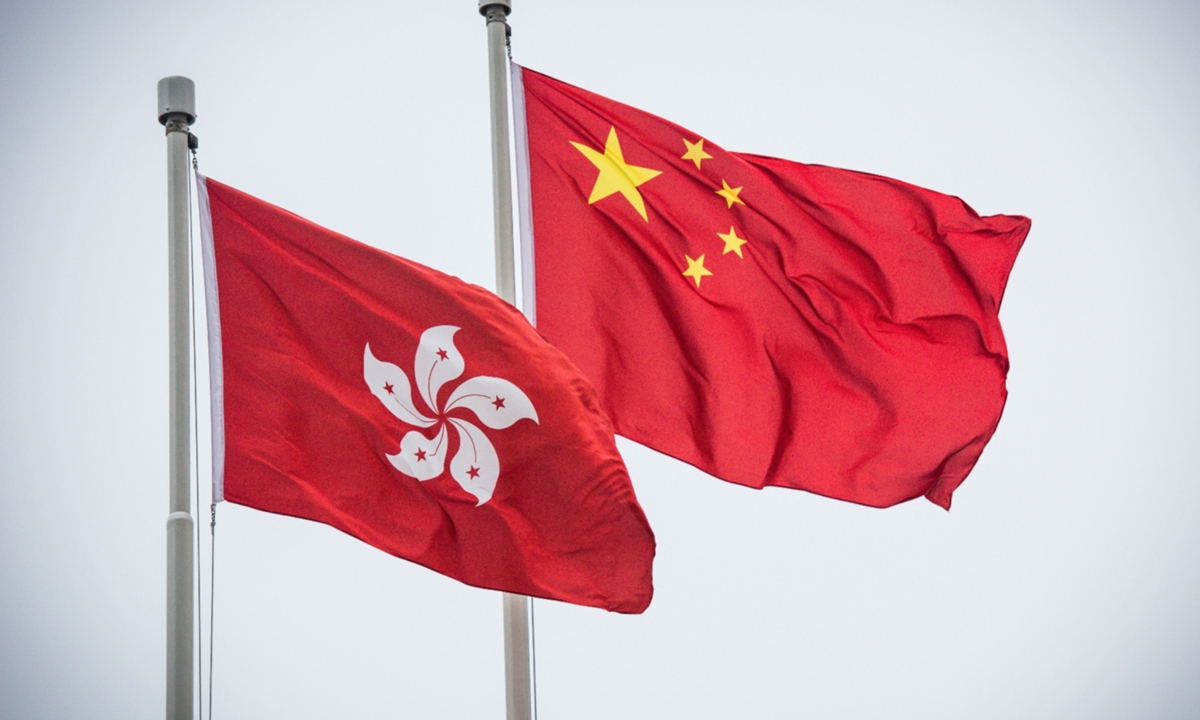Anti-China forces exploiting institutional loopholes made HK universal suffrage impossible: senior official

Photo: VCG
It was the anti-China forces who exploited the Basic Law of Hong Kong to veto the universal suffrage plan for the regional chief executive and the Legislative Council (LegCo), making the goal of universal suffrage unable to achieve, a senior Chinese official said on Friday.Zhang Yong, deputy head of the Commission for Legislative Affairs of the National People's Congress (NPC) Standing Committee, made the remarks at Friday's media briefing, one day after the NPC, China's top legislature, adopted a decision to improve the electoral system of the Hong Kong Special Administrative Region.
Zhang said the facts showed that if the institutional loopholes for anti-China forces to gain access to government organs were not fundamentally closed, the procedure for universal suffrage would, in fact, not work.
The chaos in Hong Kong in recent years revealed the institutional loopholes in the Basic Law, which meant that anti-China forces exploited them to gain access to government organs to blatantly engage in activities that endanger China's sovereignty, security and development interests and undermine Hong Kong's prosperity and stability, Zhang said.
By taking advantage of the procedural flaws in the system, the anti-China forces deliberately undermined the constitutional order and governance. They obstructed the development of democracy in Hong Kong, Zhang said.
As early as 2007, China's top legislature has adopted decisions saying the election of the fifth chief executive of Hong Kong in the year 2017 could be implemented by universal suffrage. Then in 2014, the top legislature further defined the roadmap and timetable for the implementation of universal suffrage for the chief executive and the LegCo of Hong Kong.
Regrettably, the anti-China forces exploited the procedures in the Basic Law and vetoed universal suffrage for the chief executive, Zhang said.
The fundamental purpose of the electoral reform is to ensure "patriots governing Hong Kong," restore the constitutional order, improve the effectiveness of governance and lay a solid institutional foundation for the steady and sustainable implementation of "one country, two systems," Zhang said.
Zhang Xiaoming, deputy director of the Hong Kong and Macao Affairs Office of the State Council, said at the media briefing that Thursday's electoral reform was a "small incision" to amend and improve the electoral system of Hong Kong. The goal of universal suffrage for the election of Hong Kong's chief executive and members of the LegCo will remain unchanged.
As for the specific arrangement of the system of universal suffrage, it should be formulated in accordance with the principle of "one country, two systems" and the actual conditions in Hong Kong, and in accordance with the Basic Law of Hong Kong and the relevant decisions of the NPC Standing Committee, Zhang said.
